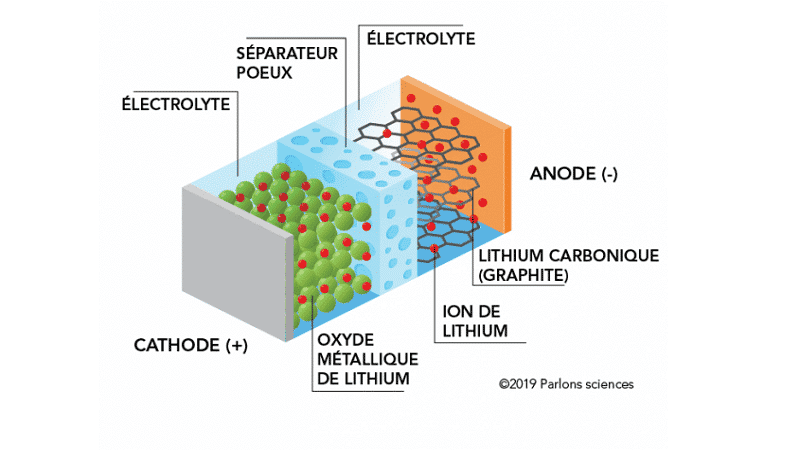
La battery Lithium-ion is a accumulator which powers the motor of an electric vehicle.
The advantage of this battery is that it has a high energy density as well as a high energy content, for a virtually no self-discharge. Self-discharge is the loss of energy when the vehicle is stationary. This capacity is even greater if we take into account its small size and lighter weight than batteries known to date. The principle of this battery is therefore highly effective for supplying electricity to electric vehicles.
The Lithium-ion battery works on the principle of a reversible exchange between two electrodes: one anode graphite electrode (negative electrode) and a cathode in (positive electrode). A process that takes place in a liquid called the electrolyte.
As long as the ions juggle between the two electrodes, the battery can supply the energy the motor needs to operate properly. Lithium ion batteries are therefore rechargeable.
As they are originally polluting, the aim would be to make them last as long as possible, by the principle of recycling. It is therefore important to be familiar with this battery in order to maintain it well, optimise its use and particularly its discharge!
Video - Maintaining and optimising a Lithium ion battery
Because yes! Lithium Ion batteries can be recycled. The government therefore requires minimum 50% retraining, to minimise their impact on the environment.
Similar articles :
- Future electric cars up to 2024
- Green'Up or Wallbox Which recharging solution should I choose?
- Which electric charging point do you need?
Do you have any other questions?
« Toutes les définitions